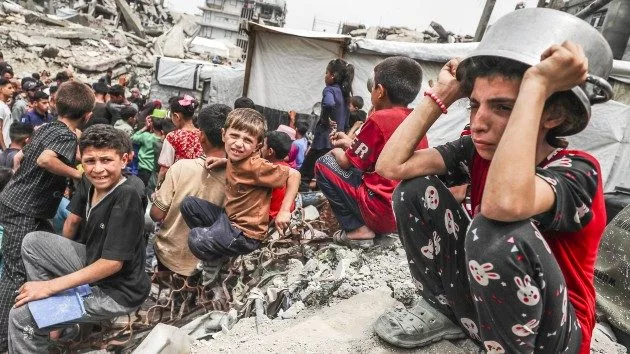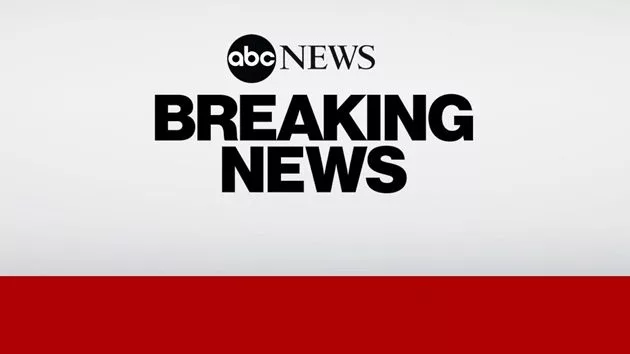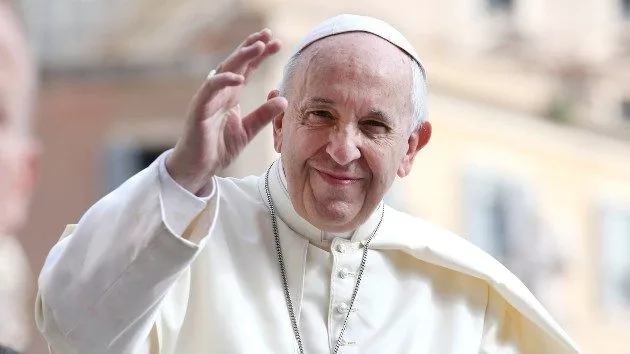
(GAZA) — Israeli authorities have blocked supplies — including food, medicine and fuel — from entering the Gaza Strip for more than 50 days.
The United Nations Relief and Works Agency (UNRWA), the main UN agency operating in Gaza, said they have run out of flour supplies in the region as of April 24 in a situational update. UNRWA has described the current state on the ground as the worst humanitarian crisis since the war began on Oct. 8, 2023, a day after a Hamas-led terrorist attack on Israel left more than 1,200 Israelis dead.
With the blockade of supplies in place, Gaza’s population of approximately 2.1 million people faces a crisis of starvation, disease and despair.
“Food, safe water, shelter, and medical care have become increasingly scarce,” UNRWA said in the update, stating prices for basic goods are soaring while bakeries shut down, and hospitals run out of critical medicine and generator fuel.
Children are bearing the brunt of this man-made disaster, aid agencies said.
“My son suffers from malnutrition,” Mona Al-Raqab, mother to 5-year-old Osama Al-Raqab, told ABC News. “There’s nothing available. No eggs, no milk, no food supplies. Meat, poultry — the things that give us strength and energy to keep going.”
Roseline Bolline, a spokesperson for UNICEF, said Osama’s story is becoming common in Gaza given the current state on the ground.
“He is not the only case. There are thousands of children in his situation suffering very badly,” Bolline told ABC News. “This is a horrible, horrific and unbearable — to watch a child suffer like that.”
Hospital admissions for acute malnutrition have surged in recent months, Bolline said.
“In February, there were 2,027 children admitted for acute malnutrition. In March, that number jumped to 3,669. This is an incredible increase,” she said. “Families are going hungry, suffering to provide food for their children. The prices of products have doubled, and many key types of food have disappeared from markets. We are extremely concerned,” Bolline added.
“Food prices have increased by between 29% to as much as 1,400% above pre-ceasefire levels, with many essential items like dairy, eggs, fruits and meat no longer available on the market,” the UN secretary general spokesperson said at a press briefing Thursday in New York.
The situation inside Gaza’s hospitals is also dire, according to humanitarian agencies.
The blockade has prevented critical medical supplies and fuel to power hospital generators from entering Gaza while the Israel Defense Forces have continued bombing areas across the strip since the collapse of the ceasefire in mid-March.
Fifty people were killed, and 152 people were injured over a 24-hour period from April 23 to April 24 in Gaza, the Hamas-run Gaza Ministry of Health said in a release Thursday.
Israeli Prime Minister Benjamin Netanyahu promised “pressure on Hamas will continue” in remarks at a Holocaust Remembrance Day rally in Jerusalem on Wednesday evening.
Dr. Ahmed Al Farra, head of the pediatric and obstetrics department at Nasser Hospital in Gaza, said the blockade is hurting civilians the most.
“We are talking about pregnant women and children,” he said. “We are facing a lot of suffering from malnutrition in both categories. According to the World Health Organization, Gaza is currently at the fifth degree of starvation — the worst on the global scale.”
Al Farra described a cascade of medical crises stemming from the lack of access to nutrition and healthcare.
“We are talking about the shortage of milk — normal formula and special formula. Pregnant women are delivering premature, underweight babies. This is catastrophic,” Al Farra said. “People are surviving on expired canned goods that often cause food poisoning. You can’t live on that for a year and a half.”
Despite the conditions, UNRWA staff — numbering around 12,000 local Palestinian workers in Gaza — continue to provide essential services.
They deliver 2,600 cubic meters of water and collect 220 tons of waste daily, according to an UNRWA situational update on April 24.
Six out of 22 UNRWA health centers are operational in Gaza as of April 20, the update from the organization said.
Medical teams are also working in 39 medical points across the strip, the organization added.
UNRWA insists that “nothing can justify the collective punishment of the Palestinian people” and calls for a renewed ceasefire, the dignified release of the remaining hostages, and unimpeded access for humanitarian and commercial supplies.
Netanyahu and his government say the blockade is part of a strategy to put pressure on Hamas to release the remaining hostages being held in Gaza.
Fifty-eight hostages remain in Gaza, with 24 of them believed to still be alive. The other 34 are confirmed dead, but their bodies remain in Gaza.
The UN has called for the end of the blockade.
“Turning to the situation in Gaza, the Office for the Coordination of Humanitarian Affairs warns that the total blockage of aid and any other supplies — now nearing two months — has led to the depletion of essentials such as fresh food and tents and to the near-exhaustion of other critical supplies for Palestinian civilians,” the UN secretary general spokesperson said at a press briefing on Thursday.
“Children are going hungry. Patients remain untreated. People are dying. It is time to lift those restrictions immediately,” the spokesperson added.
Copyright © 2025, ABC Audio. All rights reserved.



